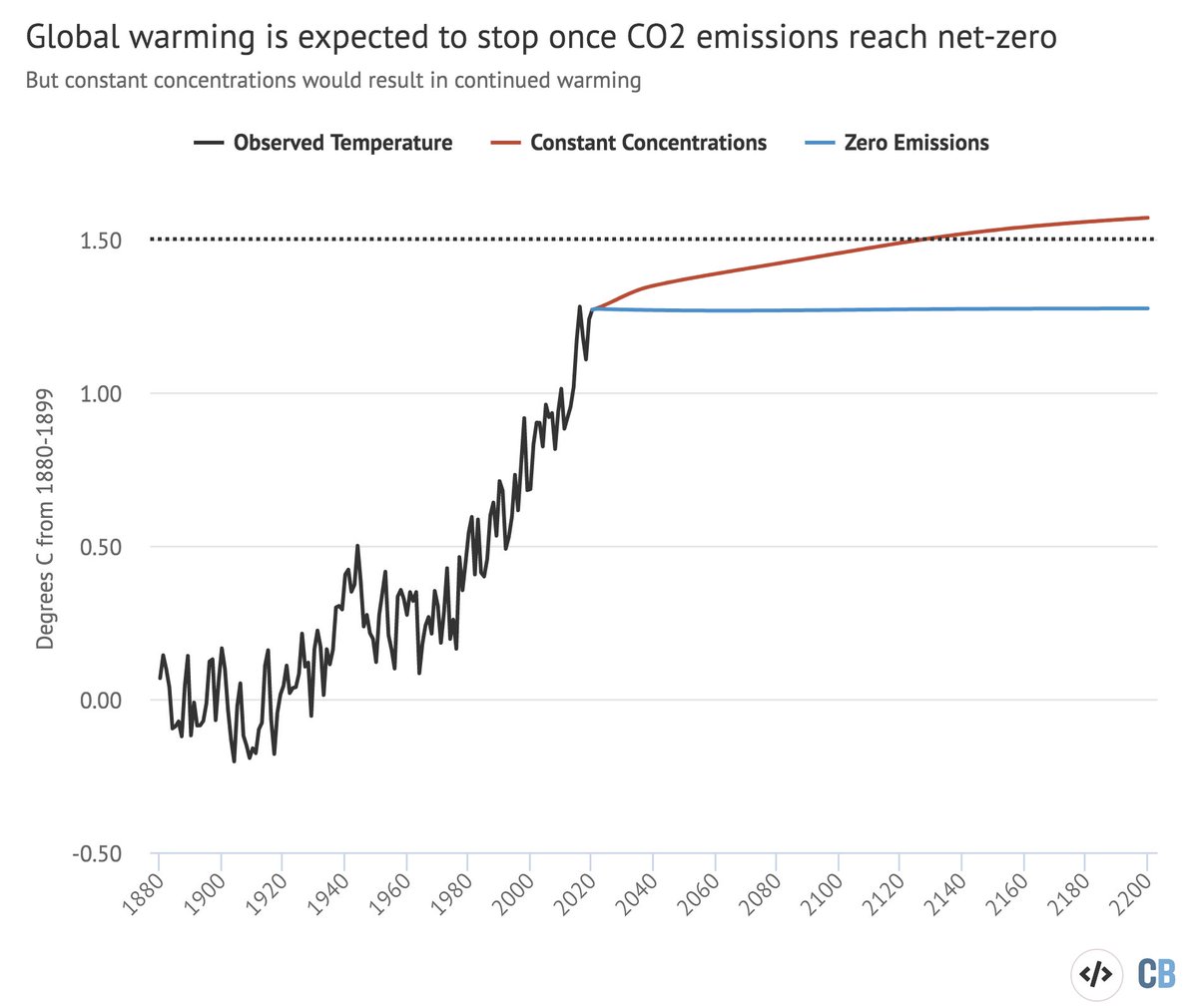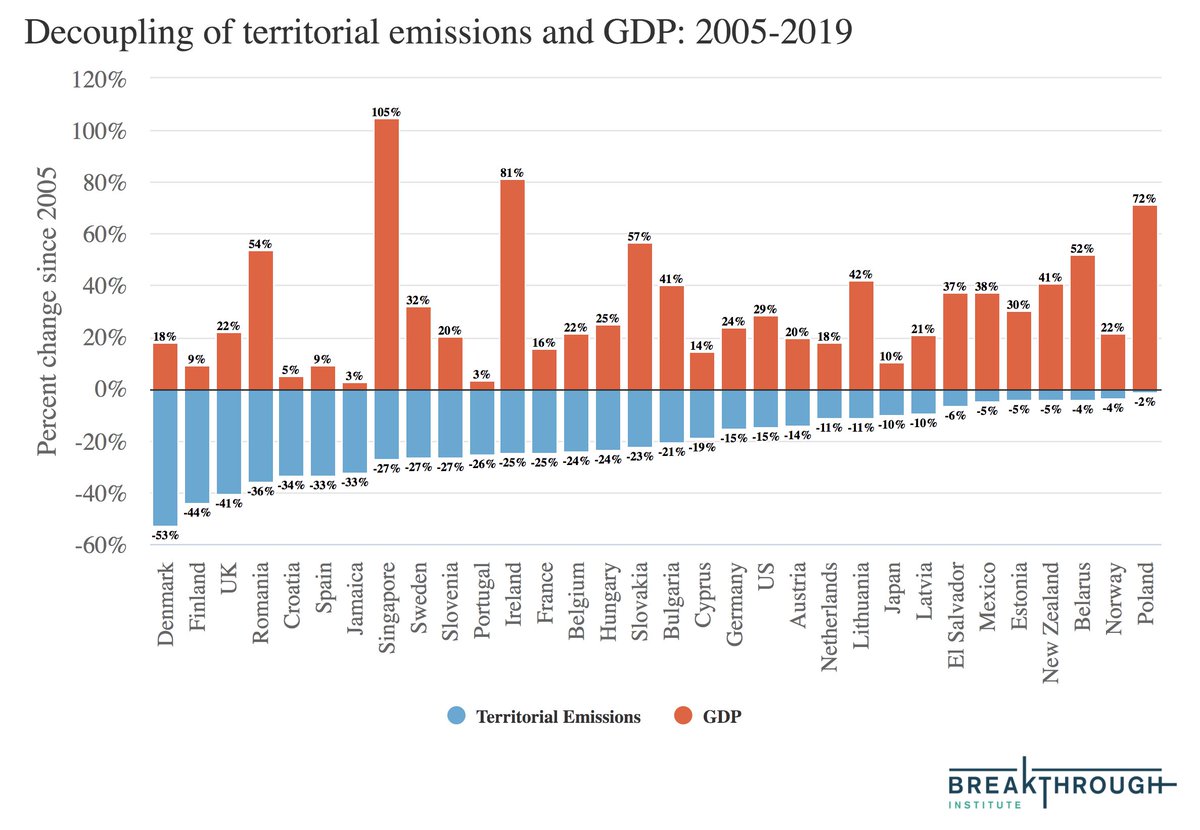
Skepticism is the heart of science, but needs to be informed skepticism. We shouldn't blindly follow experts, but should acknowledge our own biases and preconceptions when encountering new evidence.
This video by @neilhalloran strikes a perfect balance:
This video by @neilhalloran strikes a perfect balance:
Also the data visualization is simply gorgeous. I'm more than a little professionally jealous!
I will make one criticism: the warming scenario he labels "current course that assumes we make no new efforts to reduce emissions" is not, in fact that. It was designed as the 90th percentile of possible outcomes in a world with no new policies after 2005. nature.com/articles/d4158…
Today our current policies put us on track for much less warming, thankfully, but we still have a long way to go to meet Paris Agreement goals: 

• • •
Missing some Tweet in this thread? You can try to
force a refresh








